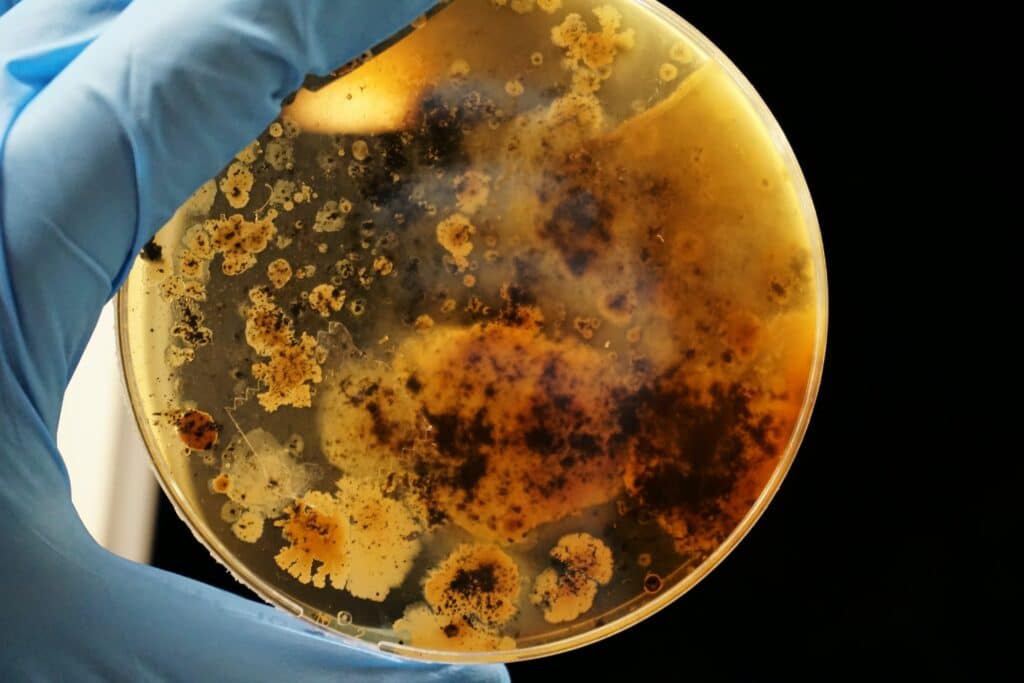
Food poisoning – or food borne illnesses – can be contracted in a frightening number of ways.
The following table from the Mayo Clinic website details some of the most common causes:
| Contaminant | Onset of symptoms | Foods affected and means of transmission |
| Campylobacter | 2 to 5 days | Meat and poultry. Contamination occurs during processing if animal feces contact meat surfaces. Other sources include unpasteurized milk and contaminated water. |
| Clostridium botulinum | 12 to 72 hours | Home-canned foods with low acidity, improperly canned commercial foods, smoked or salted fish, potatoes baked in aluminum foil, and other foods kept at warm temperatures for too long. |
| Clostridium perfringens | 8 to 16 hours | Meats, stews and gravies. Commonly spread when serving dishes don’t keep food hot enough or food is chilled too slowly. |
| Escherichia coli (E. coli) | 1 to 8 days | Beef contaminated with feces during slaughter. Spread mainly by undercooked ground beef. Other sources include unpasteurized milk and apple cider, alfalfa sprouts, and contaminated water. |
| Giardia lamblia | 1 to 2 weeks | Raw, ready-to-eat produce and contaminated water. Can be spread by an infected food handler. |
| Hepatitis A | 28 days | Raw, ready-to-eat produce and shellfish from contaminated water. Can be spread by an infected food handler. |
| Listeria | 9 to 48 hours | Hot dogs, luncheon meats, unpasteurized milk and cheeses, and unwashed raw produce. Can be spread through contaminated soil and water. |
| Noroviruses (Norwalk-like viruses) | 12 to 48 hours | Raw, ready-to-eat produce and shellfish from contaminated water. Can be spread by an infected food handler. |
| Rotavirus | 1 to 3 days | Raw, ready-to-eat produce. Can be spread by an infected food handler. |
| Salmonella | 1 to 3 days | Raw or contaminated meat, poultry, milk, or egg yolks. Survives inadequate cooking. Can be spread by knives, cutting surfaces or an infected food handler. |
| Shigella | 24 to 48 hours | Seafood and raw, ready-to-eat produce. Can be spread by an infected food handler. |
| Staphylococcus aureus | 1 to 6 hours | Meats and prepared salads, cream sauces, and cream-filled pastries. Can be spread by hand contact, coughing and sneezing. |
| Vibrio vulnificus | 1 to 7 days | Raw oysters and raw or undercooked mussels, clams, and whole scallops. Can be spread through contaminated seawater. |
As you can see, some contaminants produce symptoms within a few hours, while others can take as long as 28 days to manifest.
This is one of the reasons that food poisoning lawsuits can be difficult to prove. You may be experiencing abdominal pain and cramps, diarrhea, nausea, vomiting, and fever –but it is hard to prove that the processed salad from your grocery store was the cause, even if you are sure it was the culprit.
And often the last thing you ate is not what made you sick.
It helps if the food poisoning is experienced by several people, and if a government agency such as the CDC (Centers for Disease Control and Prevention) has confirmed an outbreak of foodborne illness, or a product has been recalled.
Luckily, most food poisoning incidents are of short duration, but some can be serious and result in hospitalization or even death.
If you have a fever of over 101 degrees, prolonged vomiting, diarrhea or bloody diarrhea, signs of severe dehydration, or confusion or trouble reasoning, you should seek medical help immediately.
If you suspect your illness is due to food you ate at a restaurant or purchased at a store there are several steps you can take to prove any claim of food poisoning:
- If possible, save the food item you believed caused the illness, and handle it as little as possible. Seal it and refrigerate or freeze it. It may not end up being helpful, but you will have it if your health department requests it. *Do not send the food or packaging back to the restaurant or a representative. Save it!
- Request additional lab testing from your medical provider that will prove the presence of any food borne pathogens. This will often require a stool sample.
- Make a list of all foods you have eaten for as long as you can recall.
- Save receipts from the restaurant or store in question.
- Social media sites such as iwaspoisoned.com can help you determine if others were affected by the same food pathogen.
- Report your case to your local health department.
If you have had a serious bout of food poisoning that requires compensation, call Putnam Law for assistance.


